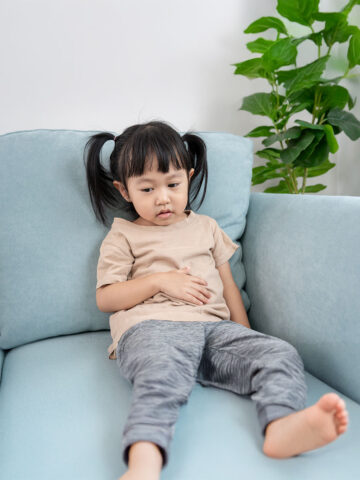Bedwetting is when a child who is old enough to control their bladder loses bladder control – also called urinary incontinence or enuresis – at night.
While bedwetting can be a frustrating condition, there are many ways to help treat this and help a child overcome bedwetting. Here, learn from a CHOC expert about bedwetting, including symptoms, treatments and strategies to help.
Why do kids wet the bed?
Bedwetting or nighttime enuresis has many possible causes, says Dr. Reshmi Basu, a pediatrician in the CHOC Primary Care Network. The cause of nighttime enuresis often is not known. But possible causes and risk factors may include one or more of these:
- Anxiety
- Attention deficit/hyperactivity disorder (ADHD)
- Certain genes
- Constipation that puts pressure on the bladder
- Delayed bladder development
- Diabetes
- Not enough antidiuretic hormone (ADH) in the body during sleep
- Obstructive sleep apnea
- Overactive bladder
- Slower physical development
- Small bladder
- Structural problems in the urinary tract
- Trouble feeling that the bladder is full while asleep
- Urinary tract infection
- Very deep sleep
What are the symptoms of enuresis in a child?
Symptoms can be a bit different for each child, Dr. Basu says.
The main symptom is when a child age 5 or older wets their bed or their clothes two times a week or more, for at least three months.
But one in 10 children age 7 years, one in 20 children age 10 years, and one in 100 children older than 15 years still have at least one episode of nighttime enuresis.
The symptoms of enuresis can seem like other health conditions. Take the child to their healthcare provider for a diagnosis.
How is enuresis diagnosed in a child?
Many children may wet the bed from time to time. It can take some children longer than others to learn to control their bladder, Dr. Basu says. Girls often have bladder control before boys. Because of this, enuresis is diagnosed in girls earlier than in boys. Girls may be diagnosed as young as age 5. Boys are not diagnosed until at least age 6.
To diagnose the child, the pediatrician will ask about the child’s health history. Tell the healthcare provider:
- If other family members have had enuresis
- How often a child urinates during the day
- How much a child drinks in the evening
- If the child has symptoms such as pain or burning when urinating
- If their urine is dark or cloudy or has blood in it
- If the child is constipated
- If the child has had recent stress in their life
The pediatrician may give the child a physical exam. The child may also need tests, such as urine tests or blood tests. These are done to look for a health problem, such as an infection or diabetes.
What treatment can stop bedwetting?
In most cases, enuresis goes away over time and does not need to be treated. If treatment is needed, many methods can help, Dr. Basu says. These include:
- Changes in fluid intake. A parent may be told to give the child less fluids to drink at certain times of day, or in the evening.
- Keeping caffeine out of the child’s diet. Caffeine can be found in cola and many sodas. It is also found in black teas, coffee drinks and chocolate.
- Night waking on a schedule. This means waking the child in the night to go urinate.
- Bladder training. This includes exercises and urinating on a schedule.Here, a CHOC urologist discusses ways to motivate a child to stay dry.
- Using a moisture alarm. This uses a sensor that detects wetness and sounds an alarm. The child then gets up to use the bathroom.
- Medicines can boost antidiuretic hormone (ADH) levels or calm bladder muscles.
- Therapy or counseling can help your child cope with life changes or other stress.
Work with the child’s healthcare provider to find out the best choices that may help them.
What are possible complications of bedwetting in children?
Possible problems from enuresis can include:
- Emotional stress and embarrassment
- Skin rash from wet underwear
How can I help my child live with enuresis?
This podcast with a CHOC psychologist offers tips about coping with bedwetting. Here are some other things Dr. Basu recommends parents do to help their child cope with bedwetting:
- Remember that the child can’t control the problem without help. Don’t scold or blame them.
- Make sure the child is not teased by family or friends.
- Keep in mind that many children outgrow enuresis.
- Protect the child’s mattress bed with a fitted plastic sheet.
- Have a change of clothes on hand while out and about.
When should I call my child’s healthcare provider?
Dr. Basu recommends that parents call their pediatrician if the child has:
- Symptoms that don’t get better, or get worse
- New symptoms
For more health and wellness resources from the pediatric experts at CHOC, sign up for the Kids Health newsletter.
Find a CHOC Primary Care Pediatrician
From babies to teens, pediatricians from CHOC’s Primary Care Network partner with parents to offer immunizations, sick visits, sports physicals and more.





